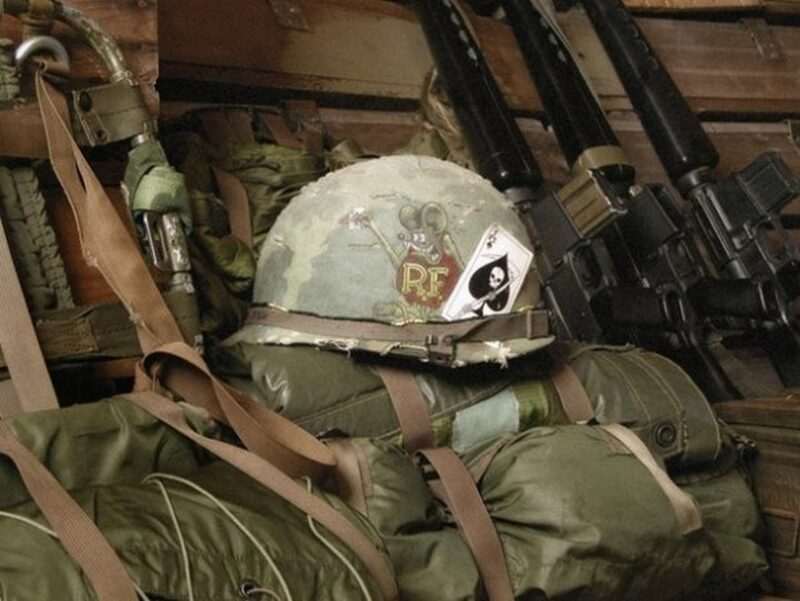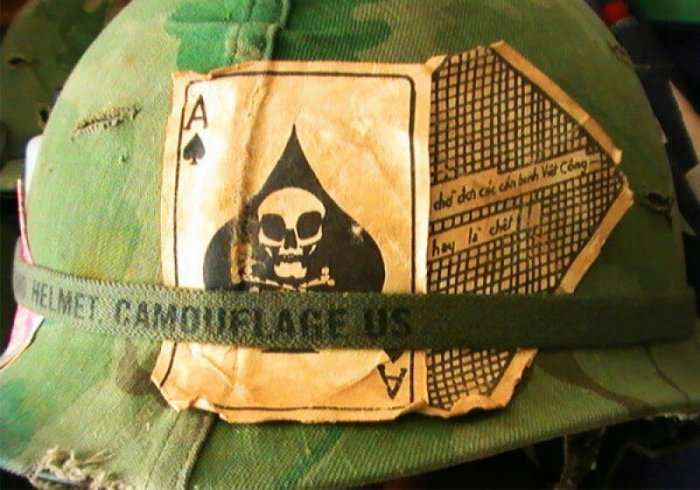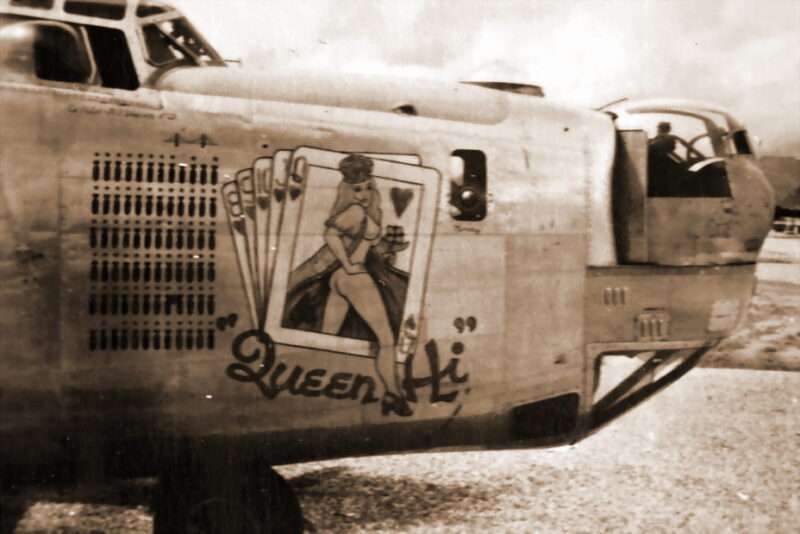The soldiers’s helmets in American movies about the Vietnam War frequently have playing cards on them. The most common of these were spade aces, but other suits occasionally appeared. Typically, they utilized regular poker cards from decks, but occasionally, paint was used to decorate the metal. For American soldiers, what did this strange decoration mean? Let’s examine these facts.

There are no atheists in the trenches, as is common knowledge. Nowhere else will you encounter as many believers and plainly superstitious people as in an area where wars are ongoing. Americans were compelled by prejudice to paint suits on their helmets and decorate them with poker cards. A card game’s outcome is mostly determined by luck.
This is also true in combat, as even the most seasoned and obedient soldier might be struck by an errant missile or bullet. As a result, playing cards have long been associated with luck and good fortune in the United States. It must be acknowledged that card mascots have been used in military contexts since the Vietnam War.

In the First World War, cards were first employed to provide mystical protection from harm and death. In addition to helmets, card suits were used on vehicles, ships, submarines, and other military hardware.
At first, the Americans and the British, close to them in spirit, “dabbled” in this, but later the French and Germans adopted the fashion. Later, playing cards also appeared on the sides of aircraft in World War II, often next to frivolous women.

Although hazing was theoretically intended to be prohibited, the US Army allowed it to continue. Such talismans, according to the command, were thought to boost military spirit, which was already a good thing.
Because the fighters weren’t extremely motivated during the Americans’ unsuccessful struggle in Vietnam, the most unconventional tactics were employed. They even started explicitly distributing card decks, including those with lewd imagery, among military troops.

But there was another justification for the ace of spades, or playing cards in general. The notion that “charlies” (Vietnamese partisans) have a terrible fear of playing cards was first put forth. Gambling supposedly repudiates their communist ideals. As a result, American aircraft occasionally dropped tens of thousands of aces of spades over enemy positions, shocking the Vietnamese to their core.

Since the courageous jungle warriors had no fear of playing cards, they were unable to comprehend the purpose of card “bombardments.” Contrary to Western and American cultures, Eastern cultures have never placed a significant emphasis on cards. The traditional suits that are still present on playing cards today first appeared in Europe.
Why is Cleaning Dirty Sewerage in India a more dangerous job than an Army job?
Because of this work, thousands more people die in India in an entire year than…
Shiny Dixit Biography: Journey of the Rising Star!
Get ready to dive into the fascinating world of Shiny Dixit, where laughter meets talent…
31 Countries without army !! Really ?
Countries without an army, Is it really possible? We discovered more than 30 countries that…
What you will find in Dubai !!
Dubai is one of the most amazing and interesting cities in the world. All these…
5 Cases of catastrophic hyperinflation in history
Some argue that money is nothing more than a piece of paper. However, when we…
Who is Lauren Sesselmann ? Beautiful Soccer Player
Lauren Marie Sesselman. She is so beautiful, but more than beauty, she is a talented…






